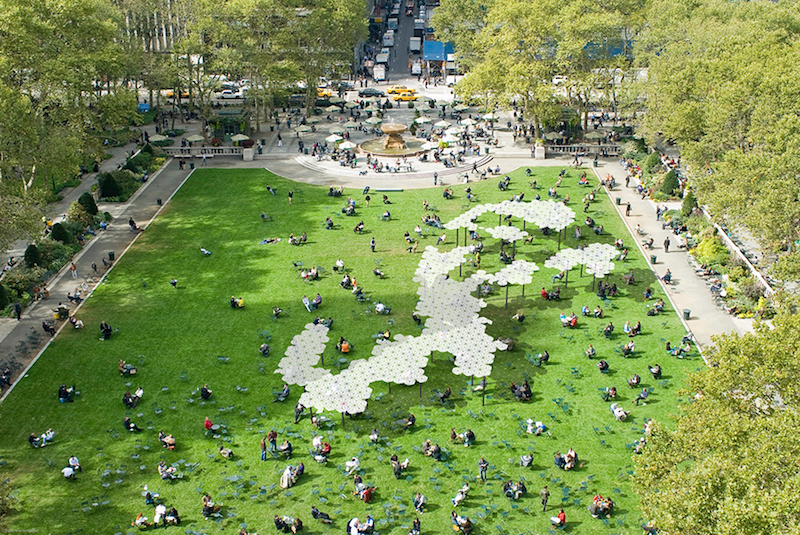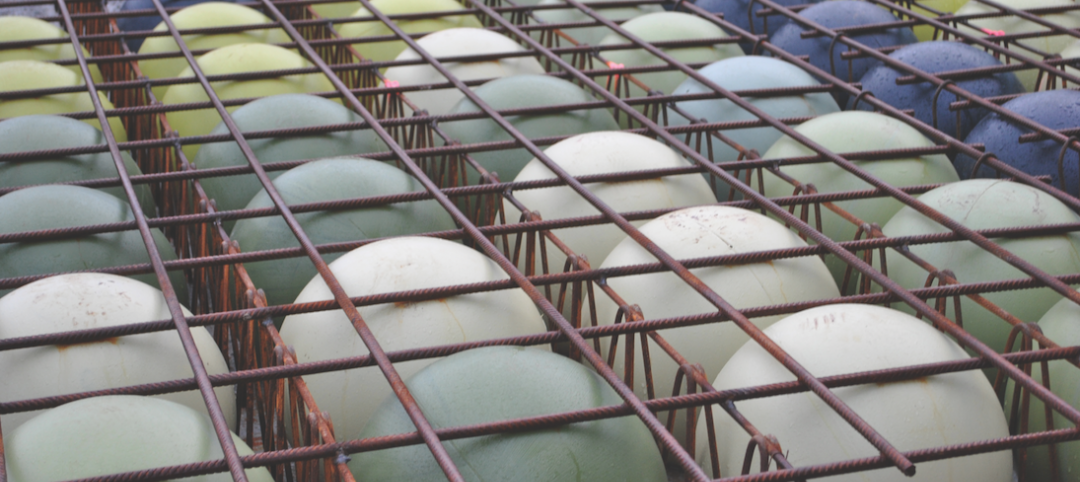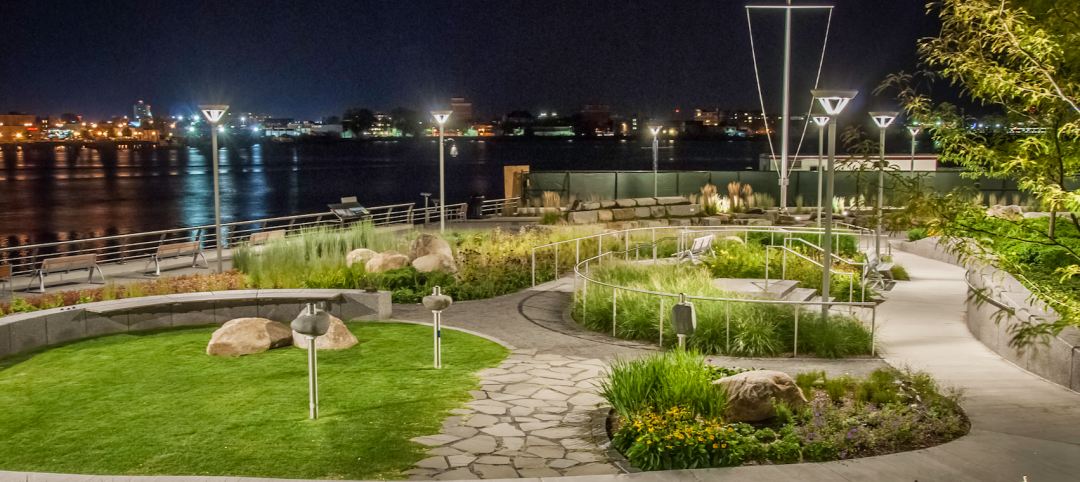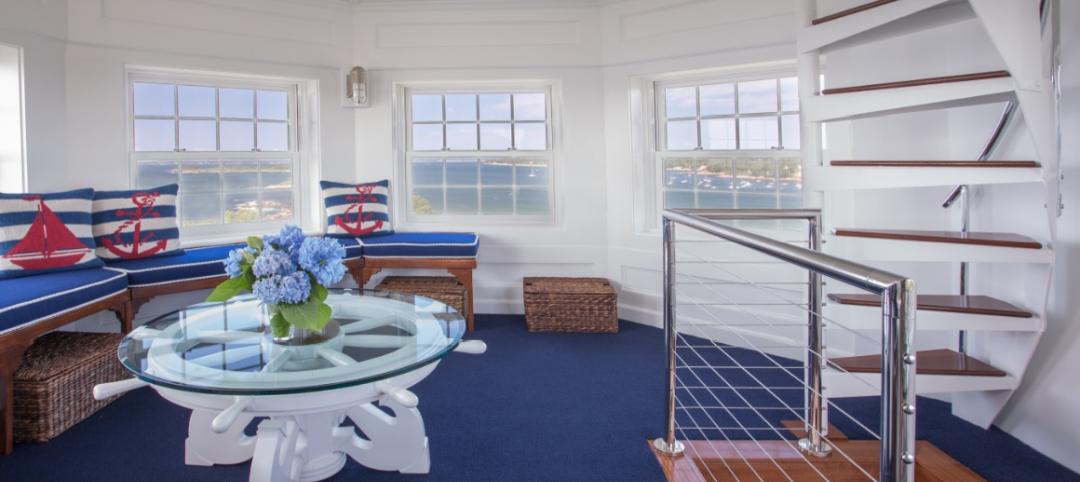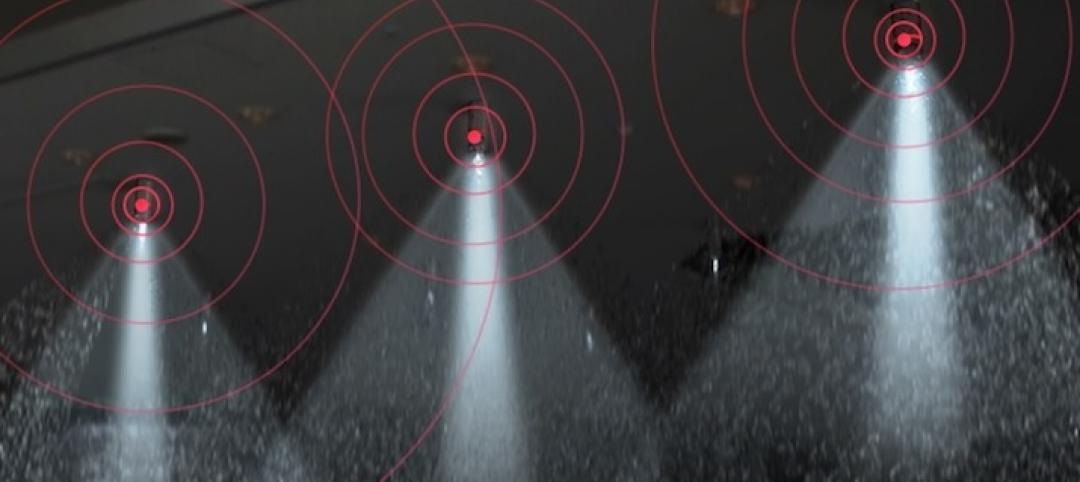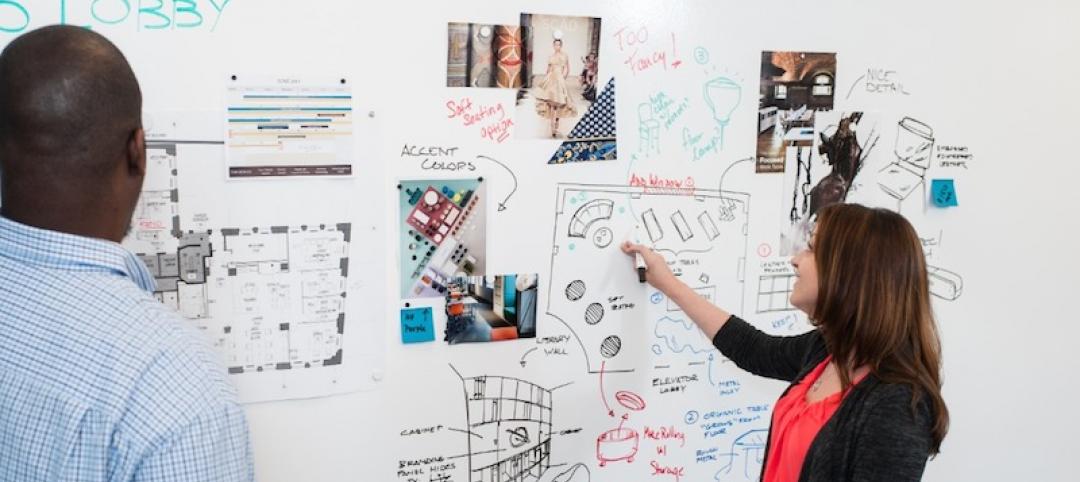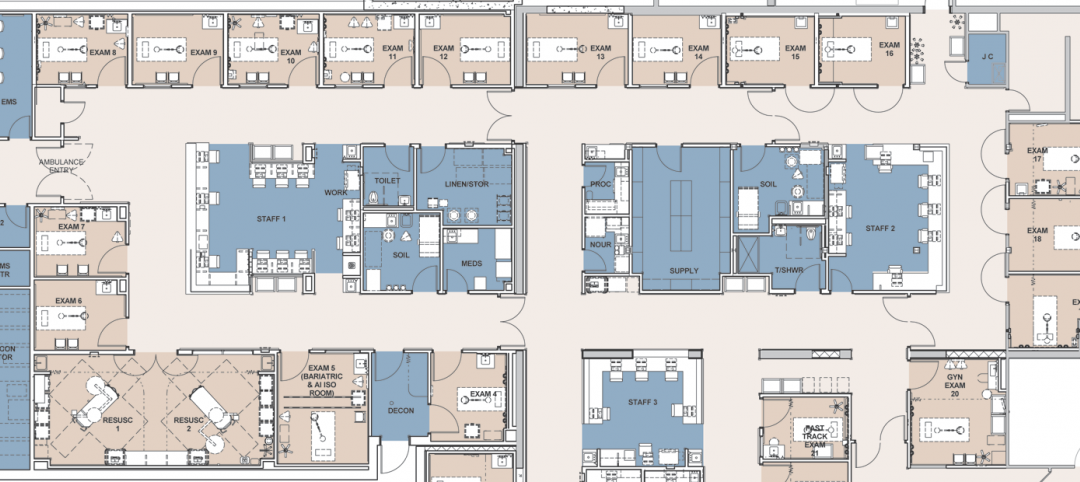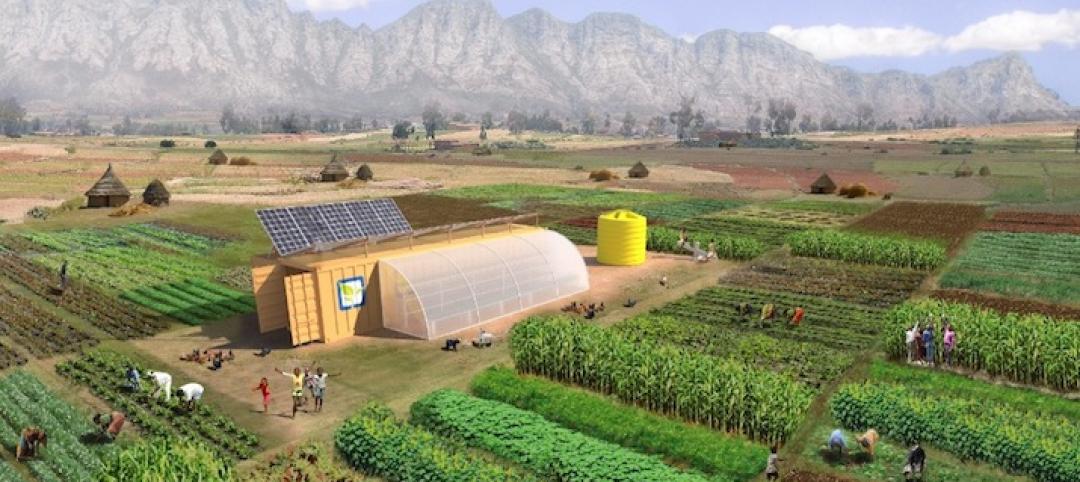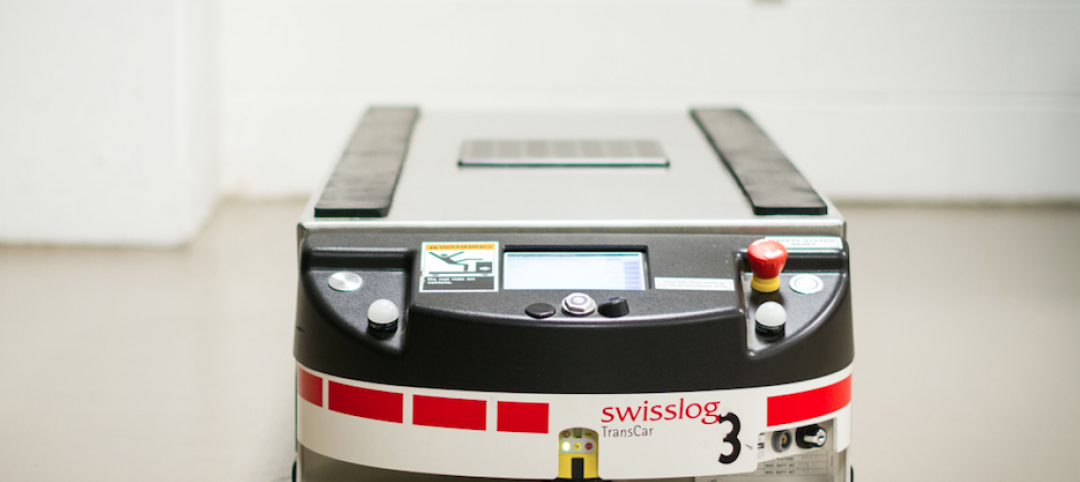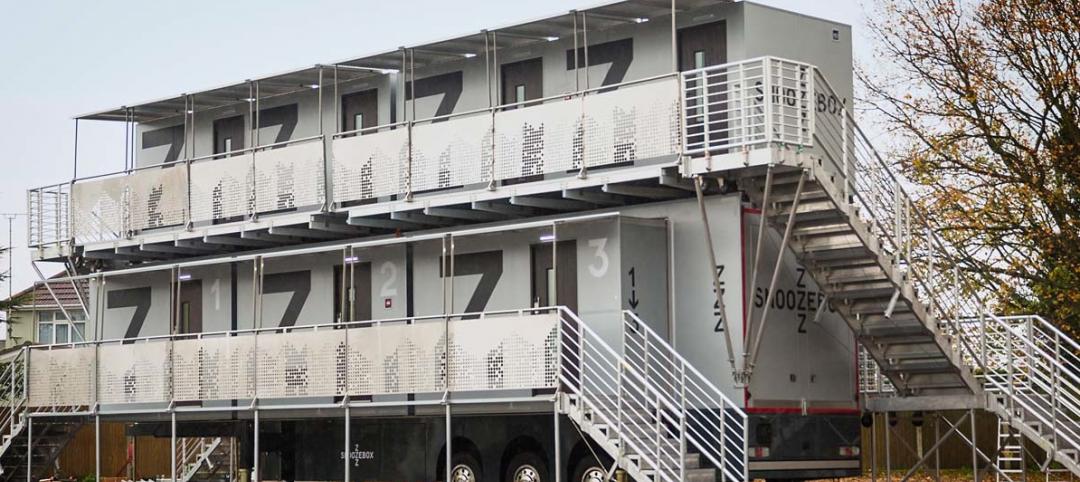Architecture is always evolving. Be it the way buildings are designed, the processes by which they are built, or the materials used. But a new prototype from the University of Stuttgart takes this continuous evolution to a new level, with a reconfigurable canopy system for public spaces that is in a state of perpetual construction.
The Cyber Physical Macro Material as a UAV [re]Configurable Architectural System (hopefully the name will continue to evolve as well) combines cyber-physical building material constructed from lightweight carbon fiber filament with integrated electronics for communication and sensing, with a collection of autonomous aerial vehicles, dubbed builders.

The canopy is composed of individual pieces that measure 40 cm wide, 64 cm long, and 25 cm tall. Each piece is composed of a roof plate that acts as the shading element, an attachment bar for UAV transport, ABS attachment plates with embedded magnets, an electronic board with a microchip, a sensor for external data input, and elements that allow each unit to communicate with every other unit.
See Also: When pigs fly? How about when cows float?
These units communicate with the UAV builders to facilitate the canopy’s movement. Separate vertical zones allow for simultaneous construction and use. This means the builders will be busy overhead changing the structure while users can still enjoy the space beneath. When the builders are not in use, they retreat to a nearby building rooftop.
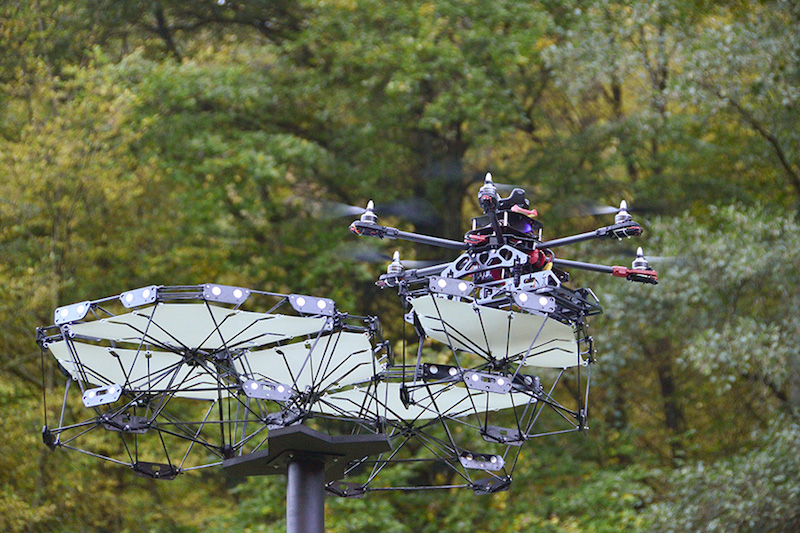
This combination of distributed robotic construction and programmable matter allows for the canopy system to constantly evolve based on its surroundings. The system can be programmed with responsive behaviors, such as following the sun’s orientation to maintain a constant shadow area, or with interactive behavior, which means the user can place columns as an interface to inform the structure where to grow.
The system can also be set to probe the environment for data to develop and learn new behaviors; after time, the system will be able to predict user behavior and change to a relevant configuration in advance.
It remains to be seen if having a hive of drones buzzing overhead will spoil the experience for some users, or if the builders will be able to reconfigure the canopy quickly enough to keep up with how people would use a given green space. At the very least, the prototype is meant to challenge “preconceived ideas of robotic digital fabrication and sophisticated prefabrication for architecture.” Miguel Aflalo, Jingcheng Chen, and Behrooz Tahanzadeh created the prototype.
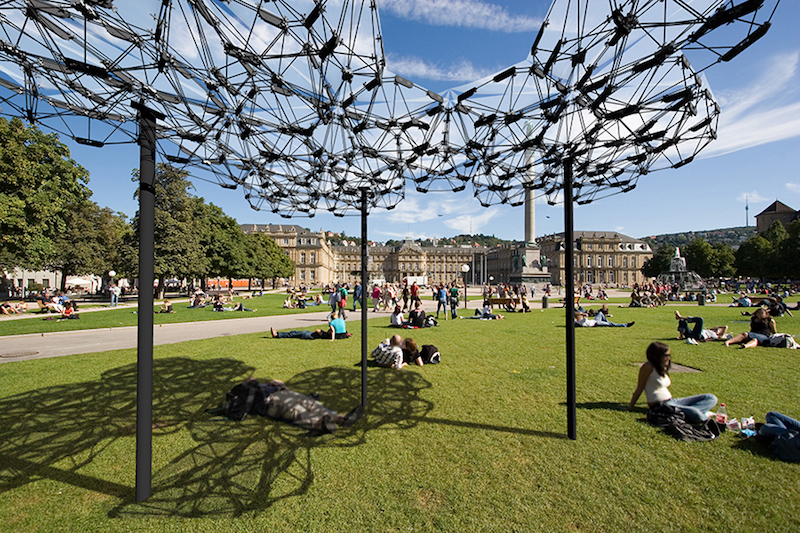
Related Stories
Great Solutions | Jan 19, 2016
Concrete innovation: voided biaxial slab slashes weight, saves concrete
System reduces slab dead load by 30% on medical clinic project
Great Solutions | Jan 19, 2016
Healing garden doubles as therapy trails
A Boston-area hospital takes the healing garden to the next level.
Great Solutions | Jan 14, 2016
WWII watchtower turned into ‘land yacht’
Architect Siemasko + Verbridge and contractor Windover Construction transformed a coastal wartime observation post into an amenity-filled guesthouse.
Great Solutions | Jan 12, 2016
Sprinkler system does double duty
Two innovations tap into the multi-use potential for fire/life safety infrastructure.
Great Solutions | Jan 7, 2016
Bacteria-killing paint and magnetic wallcovering highlight innovations in surface materials
Sherwin-Williams recently introduced Paint Shield, the first EPA-registered microbicidal paint that kills virtually all infection-causing bacteria after two hours of exposure on painted surfaces.
Great Solutions | Jan 6, 2016
Shepley Bulfinch develops elegant design solution to address behavioral issues in emergency departments
ED scheme allows staff to isolate unruly patients and visitors in a secure area.
Great Solutions | Jan 6, 2016
All-encompassing farming kit can provide communities with a sustainable food supply
Several manufacturers partnered with the group Farm from a Box to develop an off-the-grid farming solution for communities, all without the need for outside help.
Great Solutions | Jan 4, 2016
Toronto’s newest hospital employs 10 robots for moving food, supplies, and equipment
The 1.8 million-sf Humber River Hospital is loaded with high-tech gadgets. Its coolest innovation is the use of automated guided vehicles.
Great Solutions | Jan 4, 2016
Snoozebox’s portable hotel rooms make outside events more livable
Since 2011, the London-based company has thrived by creating portable hotels that are set up for the duration of open-air events (or longer), and offer many of the comforts of conventional hotels.


